Sarah Ruhl’s Eurydice is based on the famous Greek myth of Orpheus and his wife Eurydice. This time, the story is told from the female perspective, which changes the message of the play. Henny and Charlie are directing this play together, and today I had the pleasure of talking to Charlie about the process. This is Charlie’s first co-directing project, and they describe the work with Henny as very inspiring. When Charlie isn’t directing plays, they study English Language and Literature at Universität Hamburg, read, and drink gallons of coffee.
Sarafina: What role does the Interesting Man play in Eurydice’s life? Is he responsible for confronting Eurydice with reality? Is he a portrayal of Eurydice’s doubts about Orpheus?
Charlie Bierend: The Interesting Man and the Lord of the Underworld are really interesting because they are a double-cast. They play both the Interesting Man and the Lord of the Underworld, so there’s immediately this connection between the two, and we turn that into an actual connection. In Greek mythology, the Lord of the Underworld is Hades. They visit the real world and change their shape, turning into an Interesting Man. That’s the Lord’s form when they enter the real world and they have been watching Eurydice for quite some time. They found out about her father in the underworld, discovered his letters, and this piques their interest in her, so they go up and sees her with Orpheus. This causes jealousy in him, so the Interesting Man represents their form of connection to her. They know what her doubts are, and they also know that she longs for deep conversations. Orpheus is often distracted by the music in his head.
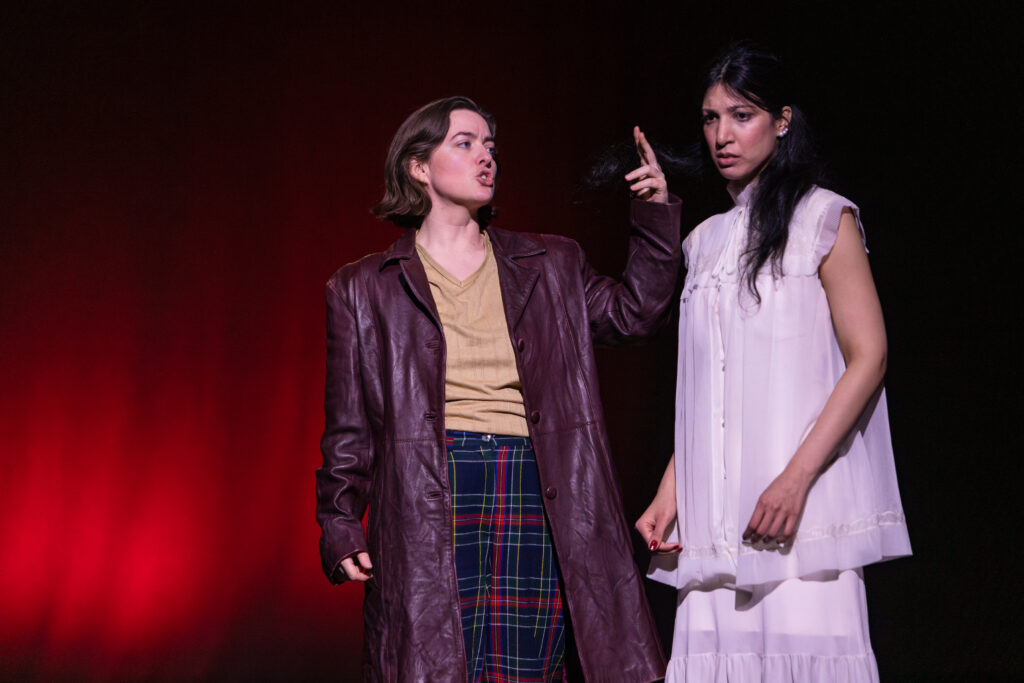
So of course, in a way, the double-cast exactly addresses all the doubts deep down that she is scared to express because she is afraid of what will happen. In the end, she really loves Orpheus, so she leaves the apartment and falls down the stairs. So one could say they are her wakeup call to start second-guessing her relationship with Orpheus.
How does the relationship with her father in the underworld impact how Eurydice sees her relationship with Orpheus?
When Eurydice is in the underworld, she sees Orpheus and reflects on everything that has happened. She asks herself “Do I really want to go back to this relationship?” She loves him, but just because you love someone doesn’t mean you’re supposed to be with them in a relationship. You can love someone and be friends or you can love someone and have a deep connection but not get married.
When you experience real love for the first time, I think you can’t go back to anything else.
Director Charlie Bierend
Eurydice’s father died when she was really young, her parents had lots of kids so she doesn’t really know what it feels like to be the center of attention. She only really experiences this when she is in the underworld because there she is the only daughter of her father. He makes her feel safe and protected, and this is the first time she knows what it feels like to be loved unconditionally, which makes her reflect on her relationship with Orpheus. When you experience real love for the first time, I think you can’t go back to anything else.
What impact does the perspective of Eurydice have on the myth? What does it change for the audience?
When the original myth was created, Eurydice was only mentioned in a side sentence. Back then, she was the damsel in distress. But in Sarah Ruhl’s version, she goes through an emancipation. She experiences a transformation from always relying on the men around her to making decisions for herself, and not for Orpheus. She makes the decision to stay in the underworld because that’s what she wants and because that’s good for her and not good for someone else. She realizes that Orpheus cannot love her the way she needs to be loved and she doesn’t want to go back to that. Because it gives us an insight into who Eurydice is, the play completely changes the narrative, making it more about self-discovery and identity than about being an object that needs saving. Eurydice has agency now.
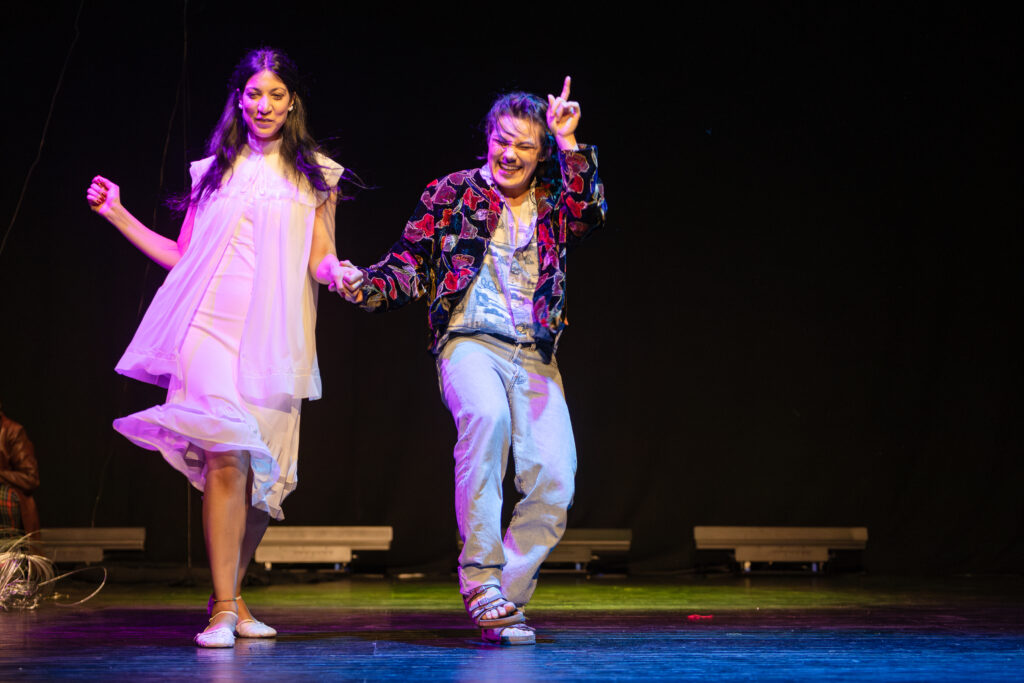
The play completely changes the narrative, making it more about self-discovery and identity than about being an object that needs saving.
Director Charlie Bierend
Could you give us an insight into the production, your whole imaginative process behind the play?
Henny and I, we drank a lot of coffee and talked about what we wanted from the play. Then you start rehearsing and everything gets destroyed (laughs). One example is Orpheus, who we had to recast. So we kind of had to change our concept around him and question the main issue in his relationship with Eurydice.
The casting makes a huge difference. When you recast a role, the character and relationship dynamics change, which leads to changes in staging. For us, it was really important that the actors find their way into their characters and that they find their versions of who they are portraying. Once we started rehearsing, everything kind of fell into place, partly because we have such an amazing cast that really wants to create a world the audience can escape to. With Eurydice, for example, Farena was exactly what we wanted. She is a very soft and feminine person. She has this aura … When you’re around her you just have to smile because she makes you happy. So that’s exactly what we wanted for Eurydice. She has this child-like innocence and a little like … childishness that really works well with the character.
The Stones for me were the hardest part to conceptualize because they are so abstract. What does a Stone act like?
Director Charlie Bierend
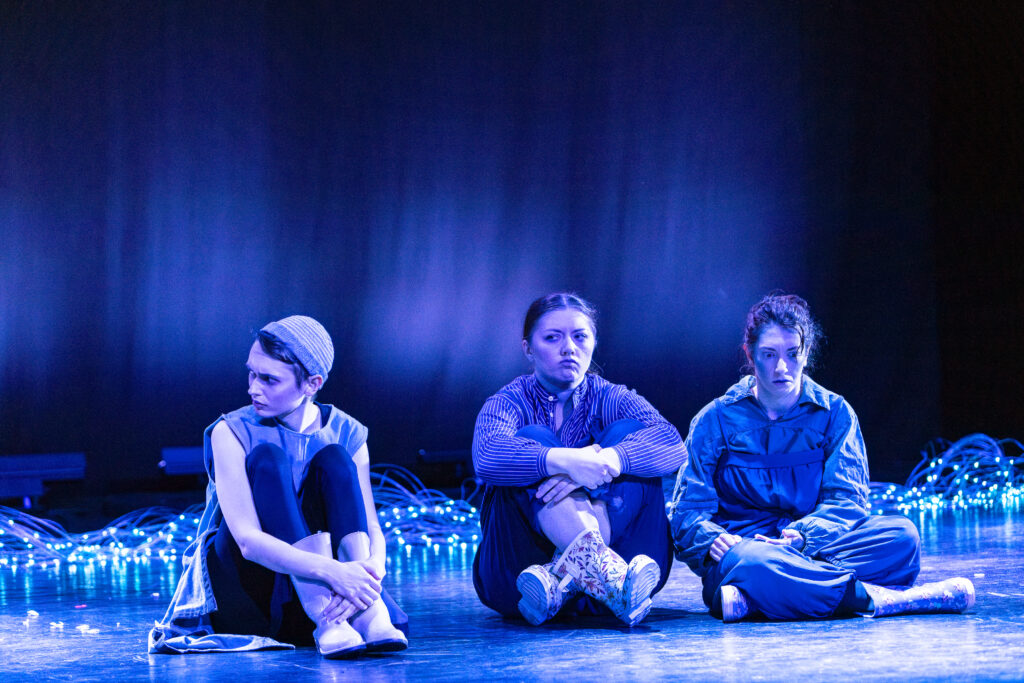
The Stones for me were the hardest part to conceptualize because they are so abstract. What does a Stone act like? But then we saw how the chemistry between the actors grew and suddenly everything made sense. Beyond the actors, another big thing in the process is stage and costume design, which I was rather unfamiliar with, this being my first production as director. Luckily I am not alone (laughs).
I remember very vividly when Henny and I met for the first time, she told me about a garden hose she wanted on stage, and then things kind of snowballed. We brainstormed a lot and then created a concept where both the underworld and the world of the living would be visible throughout the play, because they always co-exist, and one can’t do without the other. The room of string is really central in the play, because it represents a safe space in an unfamiliar environment. Henny wanted to add a sort of industrial mood to the play by using copper pipes, so we decided to try and build a room out of this. When creating the stage and costumes, it was really more about ideas and pictures in Henny’s (and sometimes my) head that we then tried to replicate.
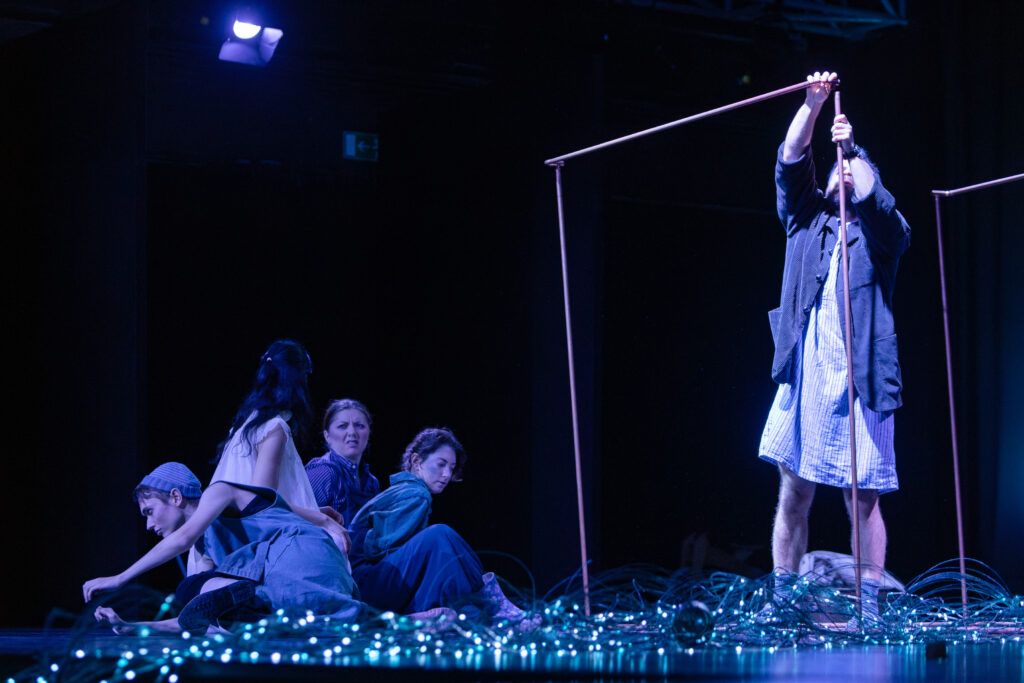
The room of string is really central in the play, because it represents a safe space in an unfamiliar environment.
Director Charlie Bierend
The music by Ole Schmitt ties everything together quite beautifully and includes a lot of elements that are also represented by the stage design and costumes. I think we really managed to capture a beautiful mood through all these elements. Our goal with the staging was to make the characters and relationships as natural and authentic as possible, so that the audience is able to relate to something. Because the play is rather abstract and can seem very superficial due to its fairytale atmosphere. Sarah Ruhl’s retelling of the myth is amazing because it gives you a lot of space to explore and to try new things, and we are looking forward to sharing it with YOU!
Thank you very much for the amazing insights, (Henny and) Charlie. I’m already excited to see how you turn the story into a play. I’m really looking forward to it.
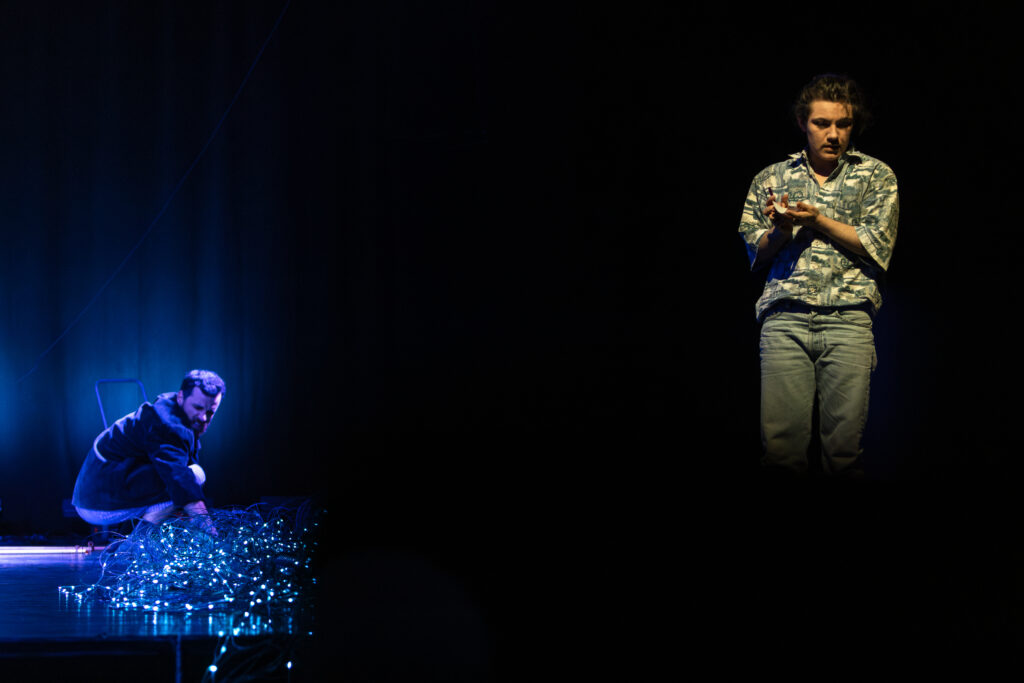
Photo (c) Sarah Naumann

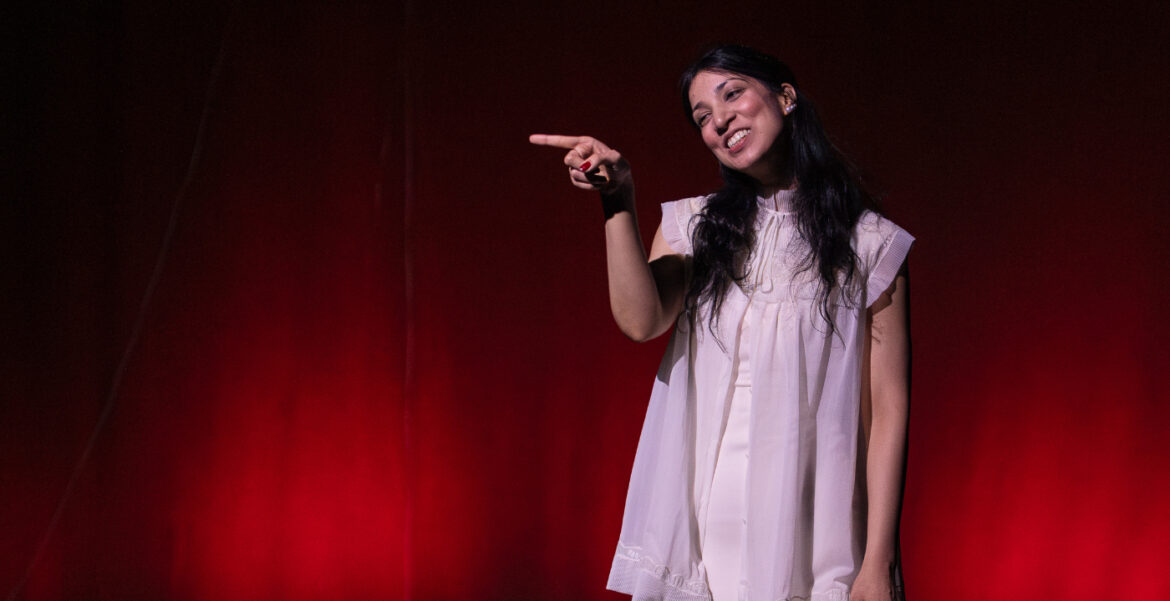
Schreibe einen Kommentar